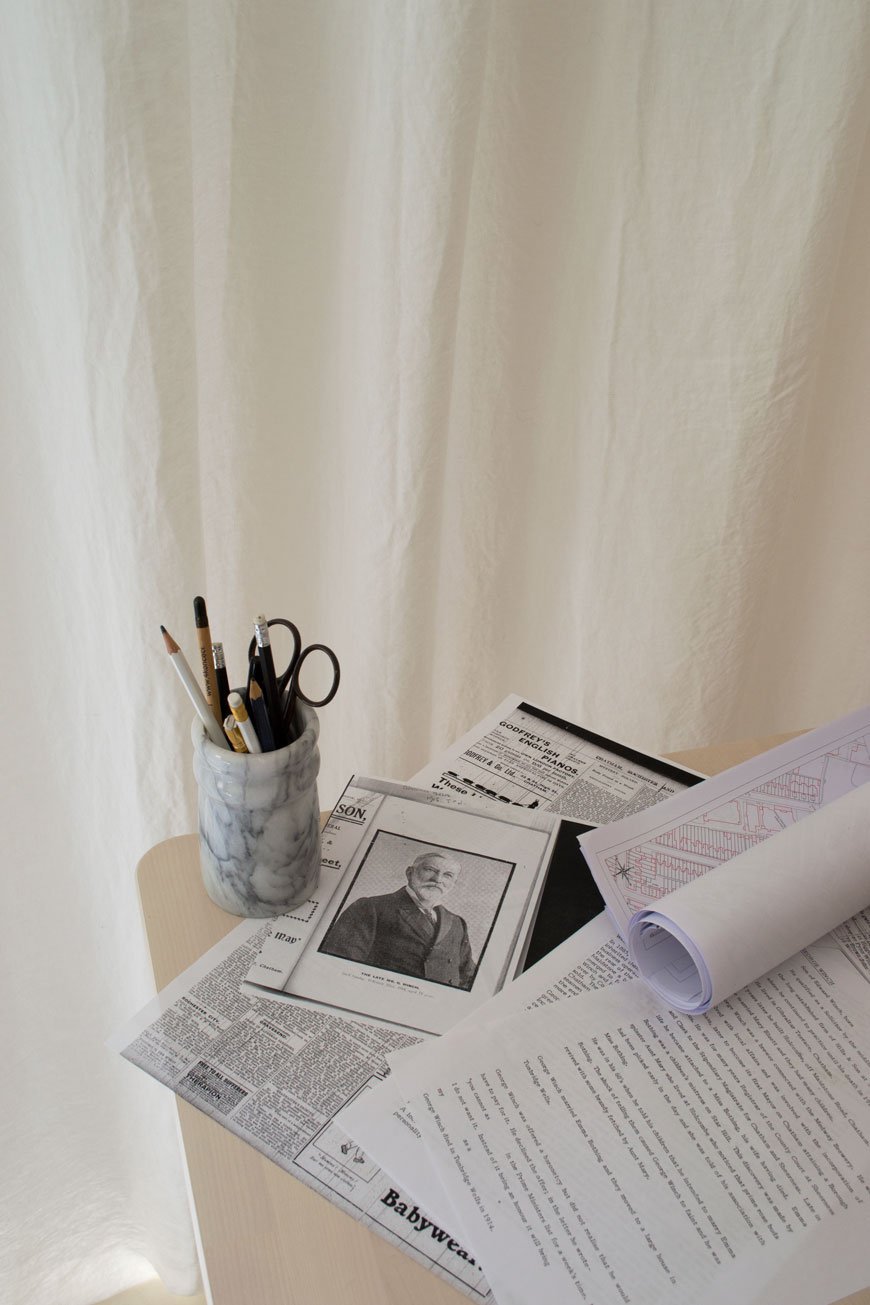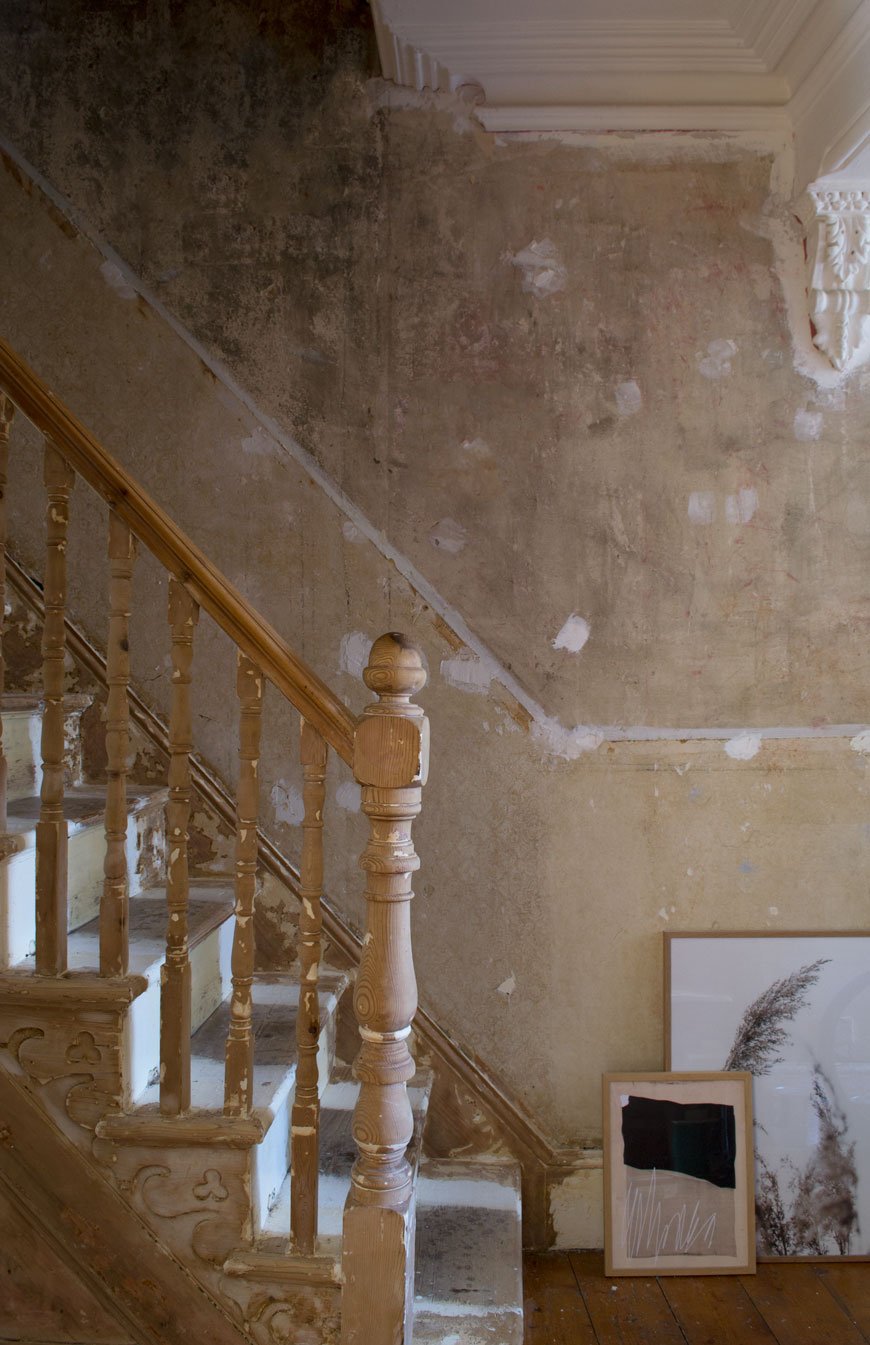How To Research The History of Your House From Home

If you're looking for a project to immerse yourself in whilst staying safe at home, you might want to look into how to research the history of your house. It's a great way to feel more connected to it, a part of its story. If you've ever wondered when that extension was added on at the back or who left that newspaper from 1952 in your loft, now's the time to get digging!
Of course, the real draw is in discovering the stories of the people who lived in your house before you. One of the things I loved doing purely for myself last year was falling down a rabbit hole of (entirely legal) historical espionage. As a self-confessed social history nut, it gave me immense satisfaction to peel back 116 years of our home's past.
When we first got the documents to the house, all that was included was the original title deeds, documenting the sale of the land to a local builder from the previous owner who was, at the time, the first Mayor of Chatham, a Mr George Winch. Nothing more. By comparison, my next-door neighbour has the name of every single previous owner from the time theirs was built.
Beyond that, there were so many questions - who were 'A' and 'M', who repeatedly scratched their initials into the brickwork around our front door and bedroom floorboards? Was the back of the house original? Has the layout changed at all? Some of the things I discovered were surprising, some of them deeply sad and perhaps one day I'll share them here.
For now, though, here's how you can start your journey and unlock your house's history online...

Dig Out Your Title Deeds
I was fully expecting copies of beautifully handwritten and typed paperwork going back all the way to 1904 when we bought our home. But no. Frustratingly, it isn't a legal requirement to have historical documentation of all the deeds to your house on file. Generally, what's important is the very first transaction and beyond that, other copies and documents kept by previous owners may be lost.
If you only have the original title deeds, they'll tell you the names of the first and subsequent owner was which will give you what you need to research them further.
Study Any Architectural Features
Whilst you might not be able to pinpoint an exact period of time, are there any architectural clues that can help to date your house? Ours was listed as 1930s by a very unexperienced estate agent, given that the square bay window and original front door and sash windows were clearly early Edwardian. They obviously didn't see me coming.
Find Local Historical Societies
Local history groups are a brilliant way to gather a broader view of your area's social history. As are Facebook groups. They'll be able to tell you all about local industries, the general day to day lives of residents and some members may even have personal memories of your street.
How To Research Previous Residents
Check Census Records
Census records are a brilliant snapshot into the lives of previous residents as they detail every family member in the household, from their full name to age and occupation. My searches revealed a husband and wife with two daughters were the first to live in the house after it was built. The father worked as a carpenter at the Chatham Dockyard, his eldest daughter was a school teacher at aged 16 and his youngest was an apprentice draper.
Current UK records are available up to 1911 and go back every ten years up to 1841.
As census records are only released 100 years from when they were first taken, meaning records for 1921 won't be available until 2022.
Note - there were no census records during WW2.
Electoral Registers
If you come unstuck with the census, it's worth trying electoral registers which began in 1832. These detail anyone of voting age within the property. Over time, you can track the movements of residents who come and go, building a bigger picture of the story of your house.
Births, Marriages and Deaths
Once you have a few names to go on with, you can look at birth, marriage and death records.
Most genealogy sites allow you to search a few years around a date if you're unsure of the exact one and using the person's full name (maybe with a few variations) should uncover documents you can view online. Further investigation will kick up all sorts, like the name of a spouse, subsequent children, occupations and deaths in the family. Eventually, you should have enough to sketch out a rough family tree.
Documents You Can Access After Lockdown.
Some things just can't be found online as you'll need to go in person to view them. When it comes to genealogy, nothing beats the excitement of a trip to the local archives. Your local archives will have a variety of documents and newspapers on microfiche film to view and purchase copies of.
Ordnance survey maps - ask permission from your local council or archives for copies of maps of your street and the surrounding wider area over a period of time. You'll be able to visualise exactly how your area has developed and spot when your property started to appear on maps.
Local newspapers - in some cases, members of your household may have been reported in local papers. If they have any records pertaining to court orders, debts or were prominent in their community, it's worth spending a few hours viewing copies of newspapers which have been copied onto microfiche film.
Original photographs - these are a fantastic window into the past. Your local archives may have images taken from your neighbourhood which will piece together how it looked at the time your house was built up to the present day. These are generally quite rare though, so don't set your hopes too high.
Building plans and submissions - ask your archives centre if they can search for blueprints and building applications attached to your address. In some cases, there may be originals that you can view in person that illustrate how the house was built along with materials used. Additional applications will also help you piece together how the house evolved over the years.
Useful Resources:
Photography © Tiffany Grant-Riley.